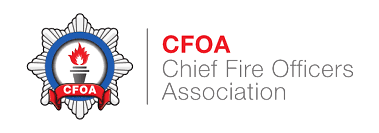Research highlights the importance of domestic sprinklers
Research highlights the importance of domestic sprinklers
The Chief Fire Officers Association is continuing to call for legislative change regarding the installation of sprinklers in domestic properties following a study by Strathclyde University which highlights an apparent inability of standard smoke alarms to wake young children.
Led by Professor Niamh Nic Daeid at the Centre for Forensic Science at the University of Strathclyde, Glasgow, ‘The effectiveness of domestic smoke detectors in waking children: a UK study’ was prompted by a major fire in Derbyshire and was led by Derbyshire Fire and Rescue Service.
A total of 204 tests were conducted as part of the study involving 34 children (20 girls and 14 boys) between the ages of 2 and 13 years old and the tests were undertaken in the children’s homes using standard domestic smoke alarms fitted within the property. Parents activated the smoke alarms continuously for one minute after the children had gone to bed and recorded the time taken for each child to wake. The children were given no prior warning of any tests.
The results were:
- 80% of the children, including all of the male children slept through the alarms on all 6 tests
- Of the 34 children tested, only seven (all girls) woke up during any of the six tests
- Only two children (6% of the total number tests) both girls aged 10 years woke each time the alarm was sounded during the six individual tests.
Whilst the value of smoke alarms as a mean of alerting to people to fires is not in question and there is no doubt working fire alarms can save lives, the research raises a question about the ability of standard smoke alarms to wake children, especially males under the age of 13.
Dave Curry, CFOA Director for Prevention, Protection and Road Safety, said “Smoke alarms could save your life and we advise you to have detectors on each floor as a minimum, although having one in each room will afford greater protection. Smoke alarms should be tested regularly and your local fire and rescue service will be able to assist you with advice on smoke alarms and their location if required.
“Given the findings of the research we would also advise all parents to have a ‘fire plan’ which includes escape routes, and a process that ensures everyone in your home knows what to do in the event of an alarm and includes waking, alerting and evacuating all children in your home.
“Smoke detectors can only raise awareness of fire; they cannot prevent fire spreading or protect individuals. We firmly believe that sprinklers are the most effective way to ensure fires are suppressed or even extinguished before the FRS can arrive. They save lives and reduce injuries, protect firefighters who attend incidents and reduce the amount of damage to both property and the environment from fire.”
“Fire and rescue services see first-hand the devastating consequences fire can have and we continue to warn government they are not doing enough to prevent people dying or being injured in their own homes.”

